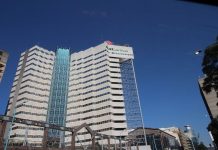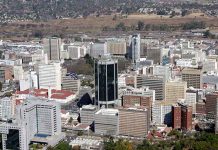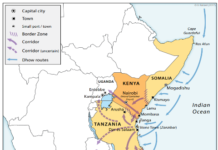Terrence Kurira
HARARE – The Public Service Pension Fund is reportedly eyeing to acquire African Sun’s Monomotapa Hotel to add to its growing property portfolio.
Well-placed sources told FinX that the cash-rich pension fund was looking at buying the 243-room hotel located in central Harare.
The hotel opened in 1974 with a unique crescent-shaped architecture comprising of 20-storeys with 19 operating floors and a basement. The price consideration is around US$20 million.
No comment could be obtained from the PSPF.
Recently, African Sun recently announced the sale of the Great Zimbabwe Hotel to the Mewame Family Trust for a gross consideration of US$4.2 million. This decision follows an earlier, unsuccessful negotiation with TD Hotels and Leisure Limited, which fell through when the company was unable to meet its payment obligations.
The Mewame Family Trust, led by Jackson Makarachi who also runs Blue Star Logistics and Dawn Properties, is an emerging player in Zimbabwe’s tourism and property development sectors. With an established portfolio already in place, the acquisition of the Great Zimbabwe Hotel is seen as a strategic enhancement to their offerings. Mewami’s intentions to bolster the tourism portfolio underscore a broader trend of local businesses seeking to reclaim and develop assets, particularly in the hospitality industry.
















